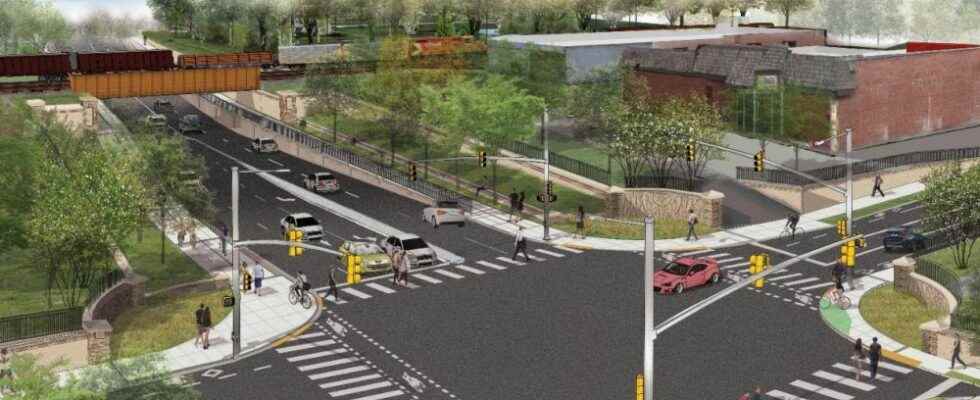No shovels are in the ground yet, but it’s already over budget.

No shovels are in the ground yet, but it’s already over budget.
Bids to build the long-awaited Adelaide Street underpass in London, a key upgrade to skirt railway bottlenecks, came in millions over budget, a new city hall report reveals. Making up the difference could mean pushing back two other road projects and taking on more debt.
Politicians will be asked to endorse a staff recommendation to award a $60.2-million contract to McLean Taylor Construction Ltd., the lowest of three bidders. The others came in at $68.5 million and $91.6 million.
“Adelaide Underpass is an important, once-in-a-generation project. It’s unique and complex,” said Doug MacRae, city hall’s roads boss.
“While we’re seeing pressures, cost volatility across the entire economy, particularly within the construction sector, the unique nature of this project makes it particularly vulnerable to those supply chain disruptions and labor shortages.”
Even the trio of bids speaks to rising costs and “strained market capacity,” city staff wrote in a report to politicians, since many more bidders were “prequalified” as part of city hall’s process.
Still, the three bids were deemed competitive, city officials say. It appears to be the cost of tackling such a large project as inflation runs high, supply chains face challenges and other London-area construction projects vie for contractors, staff say.
With $22 million spent on the underpass so far, including detailed design and other consulting work, city hall will face a nearly $30-million budget hole if the McLean Taylor contract is approved.
The total cost of the project would be $87.6 million, a 50 per cent increase over the initial project budget of $58.3 million set in 2018.
Staff suggest halting two other transportation projects for several years: repaving Wenige Expressway on Highbury Avenue between Hamilton Road and Highway 401; and realigning, resurfacing and adding bike lanes and sidewalks on Southdale Road and adding sidewalks on Wickerson Road.
“It’s important to work within our means,” MacRae said. “We’ve reviewed our program for projects that have schedules that can absorb a delay.”
Even with those delays, it will take $8.4 million in additional debt financing and $9.5 million in new development charges to cover the cost.
Canadian Pacific Railway is chipping in roughly $9 million.
The underpass is a much-anticipated antidote to roughly 100 minutes a day of traffic snarls at the rail line, which crosses Adelaide North near Central Avenue. Council voted to speed up the construction by a decade last term.
“This is an important project to solve the bottleneck rail and help people move along Adelaide Street,” said Ward 4 Coun. Jesse Helmer, who represents the area.
“We’ve moved it forward over the past few years despite the challenges posed by the pandemic. Now that we get to the point of construction, the cost increases are very significant and a clear reminder there can a significant cost to delaying and deferring projects.”
Construction is expected to start this spring and take roughly two years.
As to whether rising costs, labor and parts shortages could push the project even further over budget, MacRae said the contract essentially “locks in” the price tag.
“The cost that the contractor provides is fixed,” he said, and includes a $5.5-million contingency cushion. “We’re quite certain this contract can be completed based on the competitive price.”
ABOUT THE UNDERPASS
- Will stretch roughly from Central Avenue to McMahen Street
- Construction initially planned to start in 2031
- Spinoff benefits include new sewers, streetlights and trees
- Temporary two-lane road will be built east of Adelaide Street to handle traffic during underpass construction
- Canadian Pacific Railway is contributing $9 million to the project, while Ottawa has committed more than $6 million and Queen’s Park, $5 million
- 23 properties bought (some expropriated), in full or in part, to prepare for the big dig
